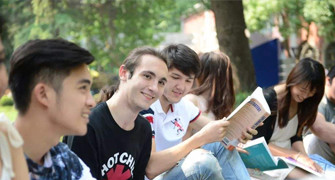Speaker:Dr Di Zheng
Site:B127
Time:16:00-17:30 Thursday Oct.30 2017
Abstract:This paper studies the economic relevance of social distance, the perception of closeness between people, in a bribery situation. In the laboratory, we first exogenously manipulate social distance using minimum groups; then subjects of three conduct a real-effort task where a judge nominates a winner for a monetary prize from two performers who individually completes an objective task. In some treatments, the performers can bribe the judge. We vary treatments based on the social distance between the judge and the performers. The experimental evidence suggests that both bribes and in-group favouritism bias decision making. The results suggest that having the chance to bribe significantly decreases the weight of performance for the judge to determine a winner. The effect of a closer relationship, however, is asymmetric. We find no significant effects for bribe offers: Performers bribe regardless of the social distance, even if bribes are non-refundable. Judges, in contrast, exhibit strong in-group favouritism when there is no bribe and they value less the in-group membership when bribes are available. (joint with Gönül Dogan and Arthur Schram)
 Faculty and Staff
Faculty and Staff Academics
Academics International Exchange
International Exchange







